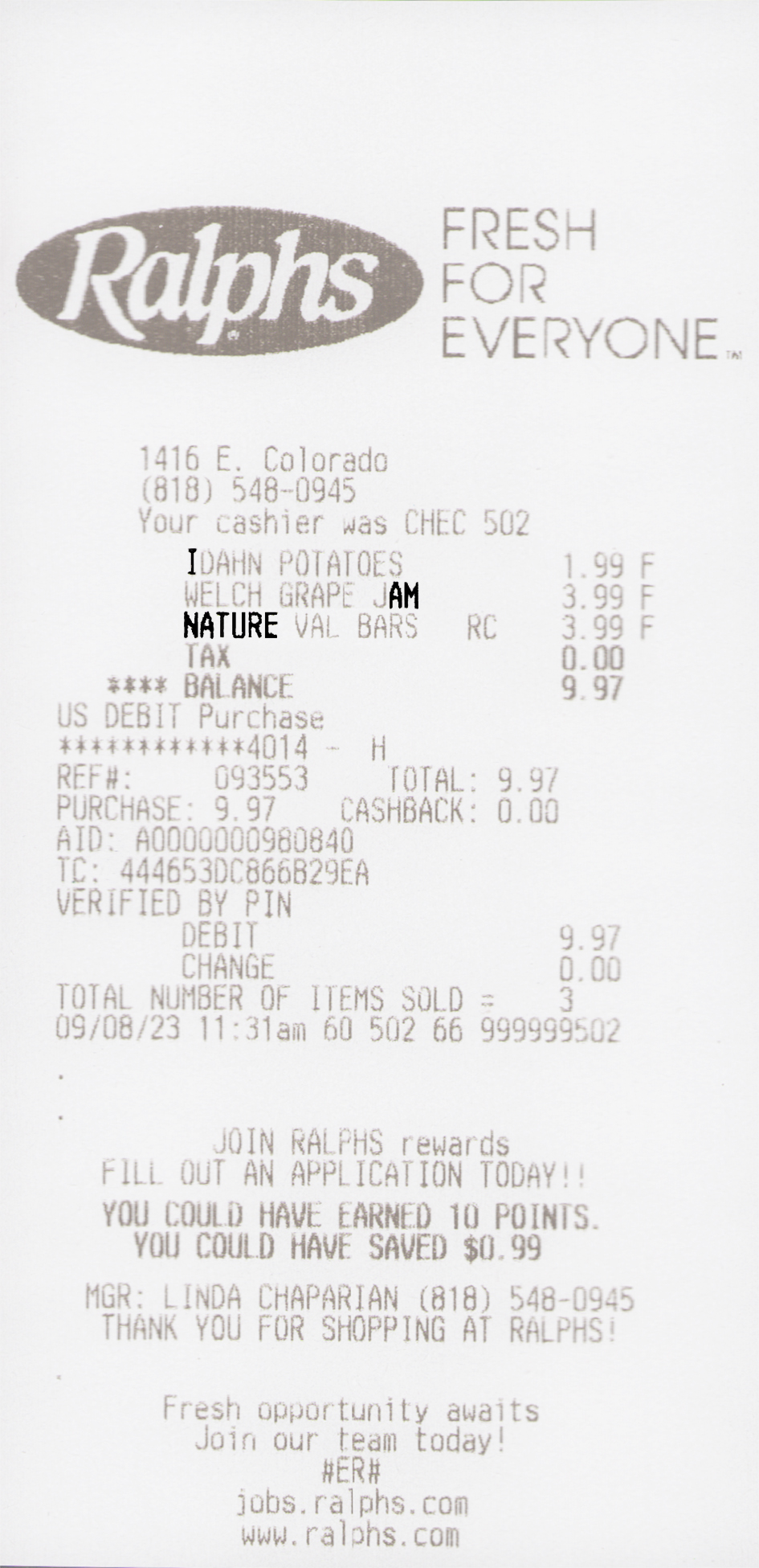
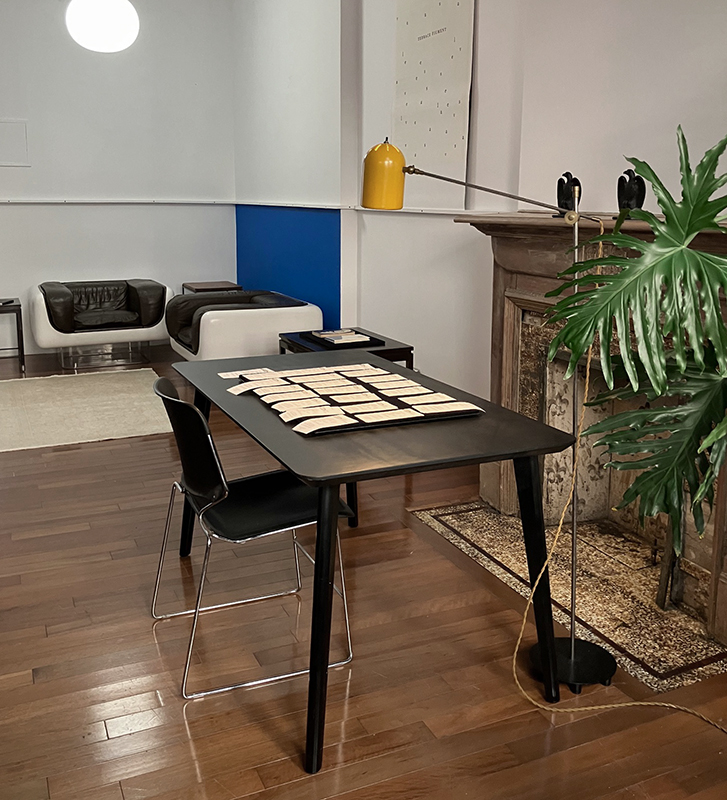
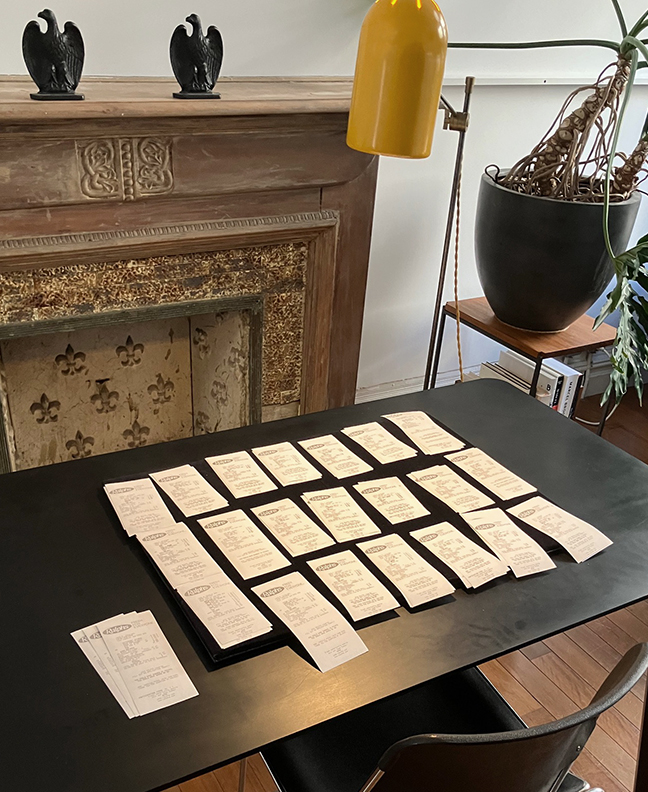
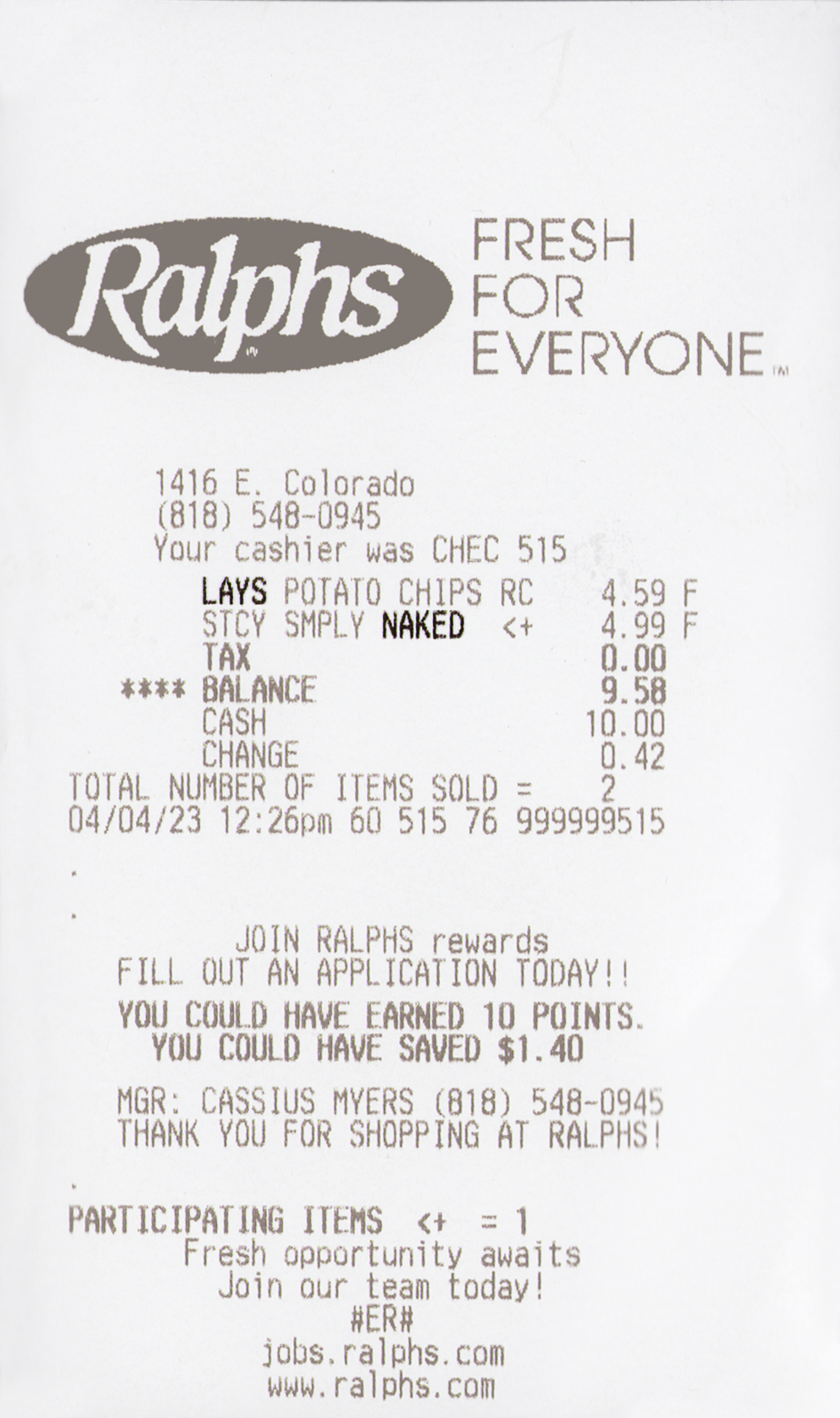
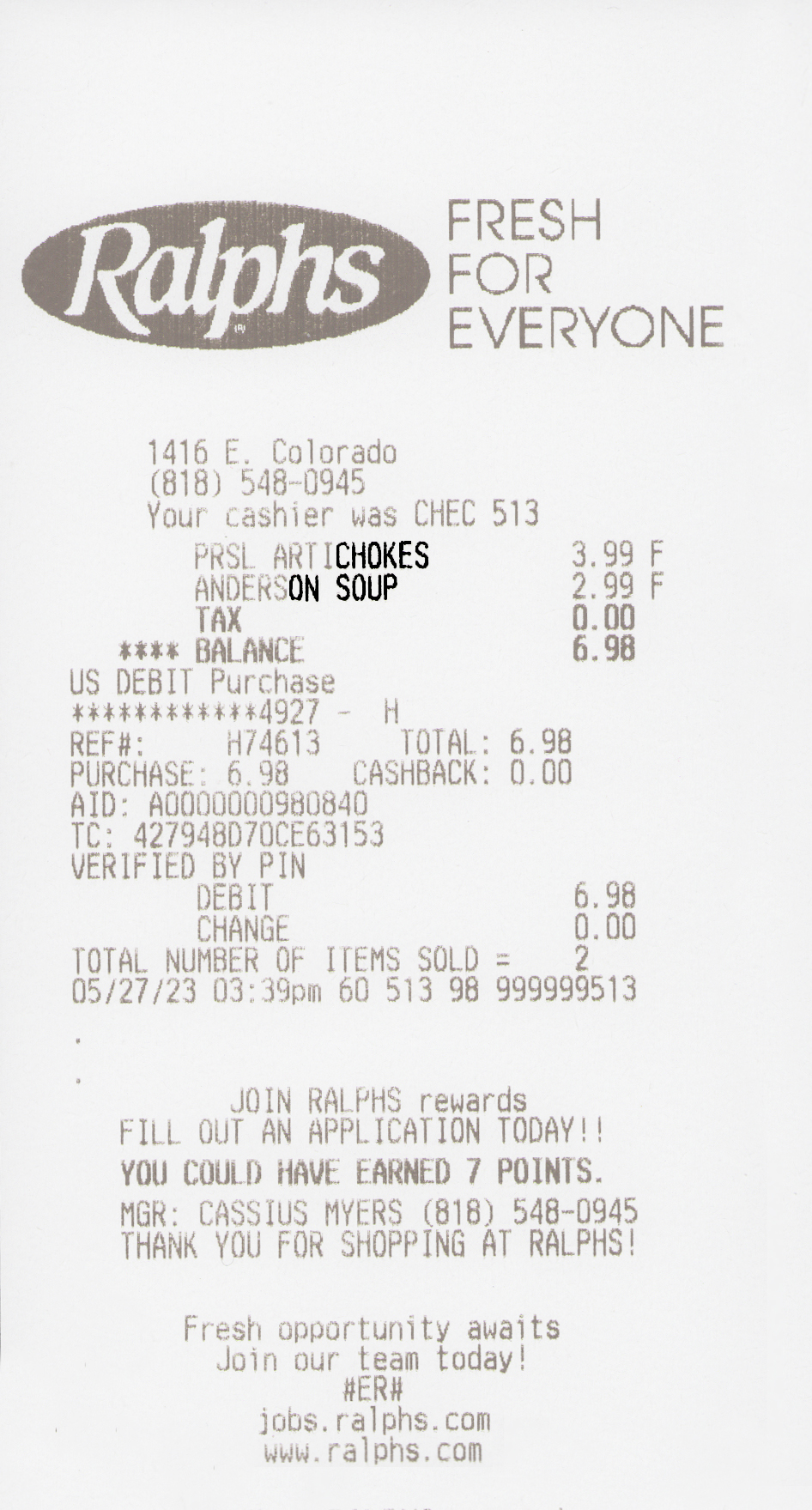
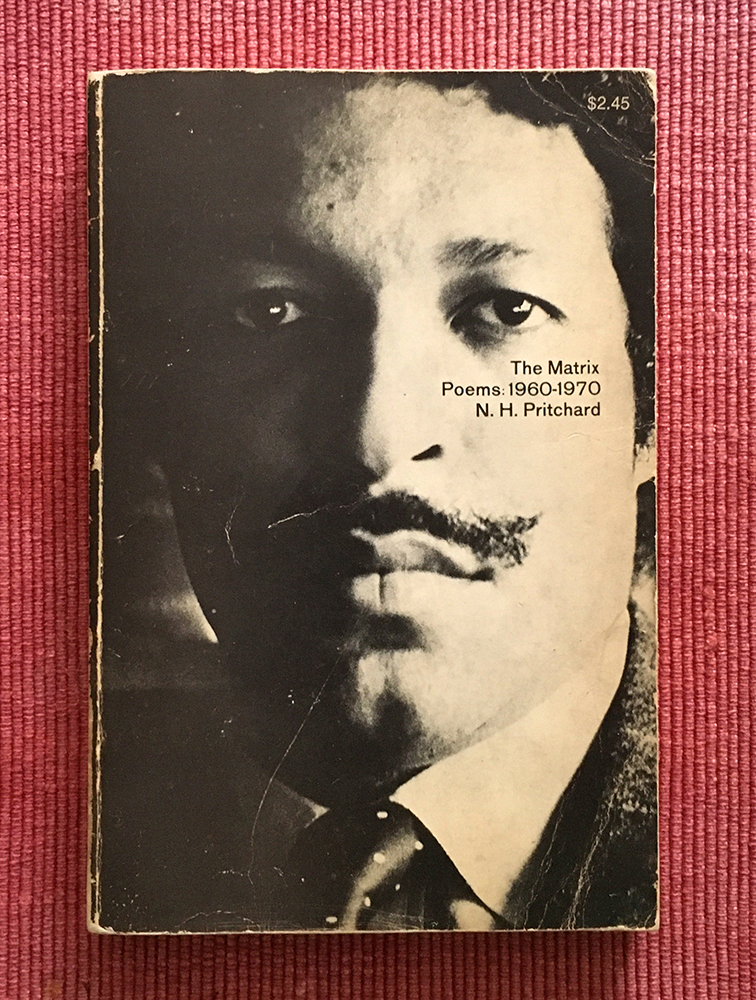
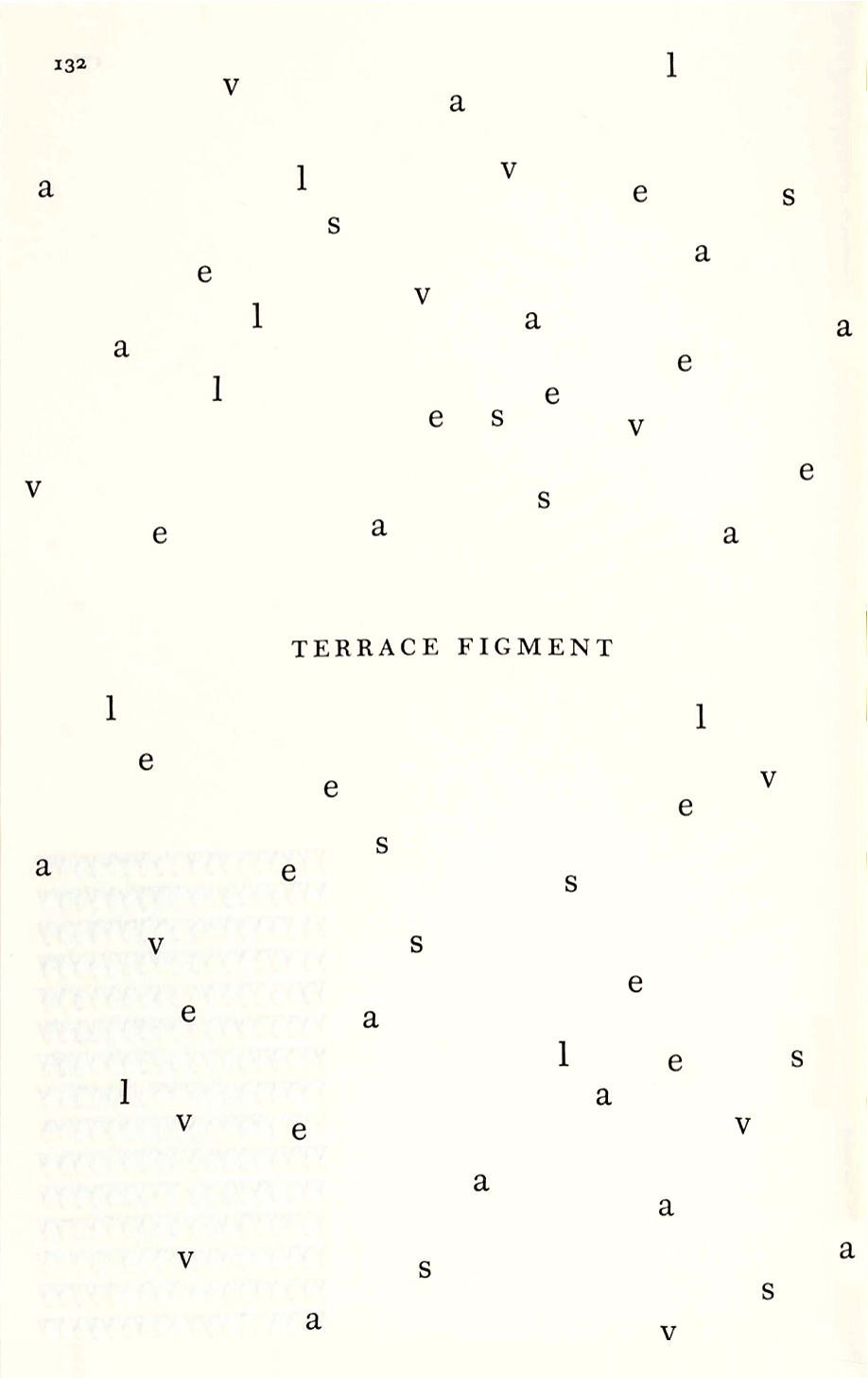
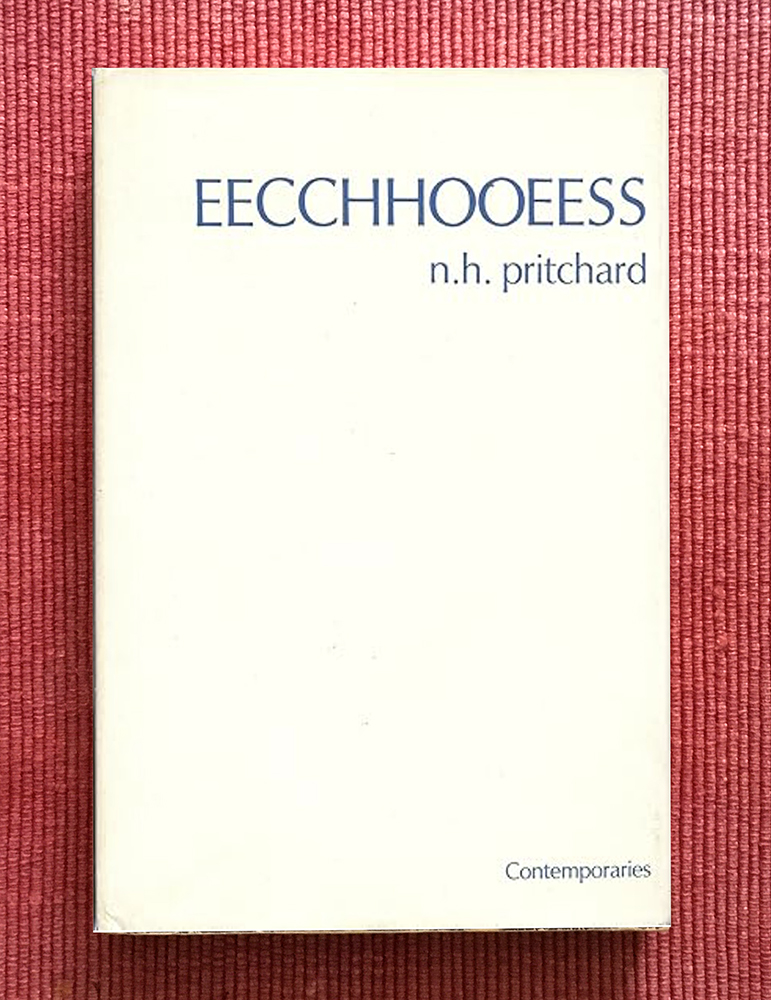
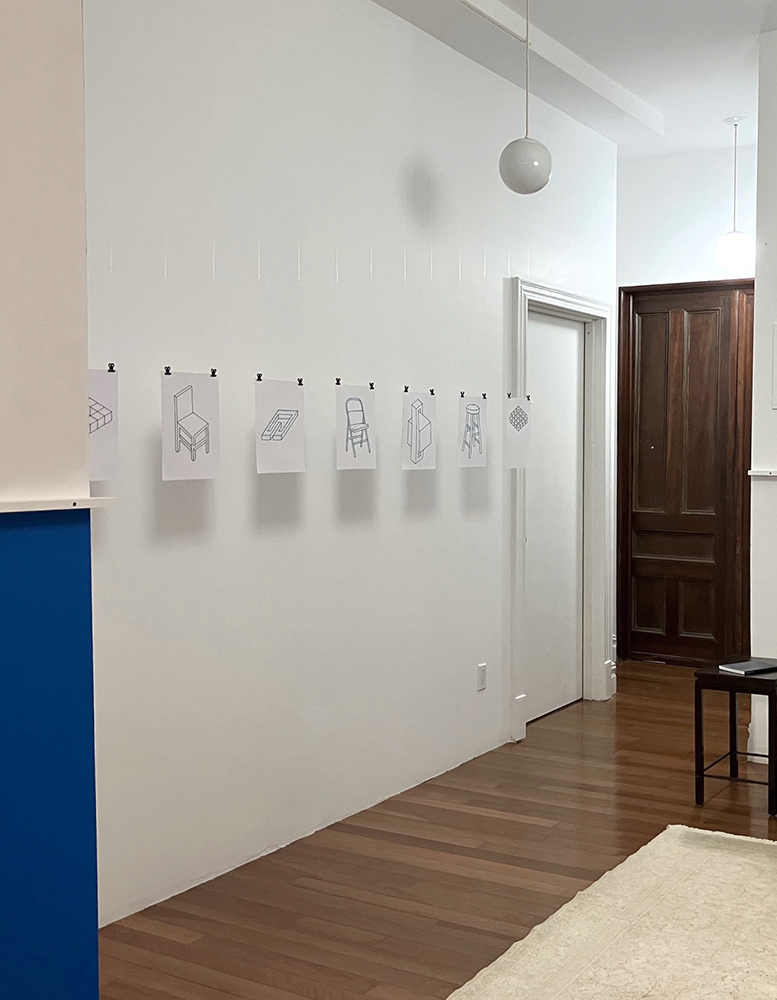
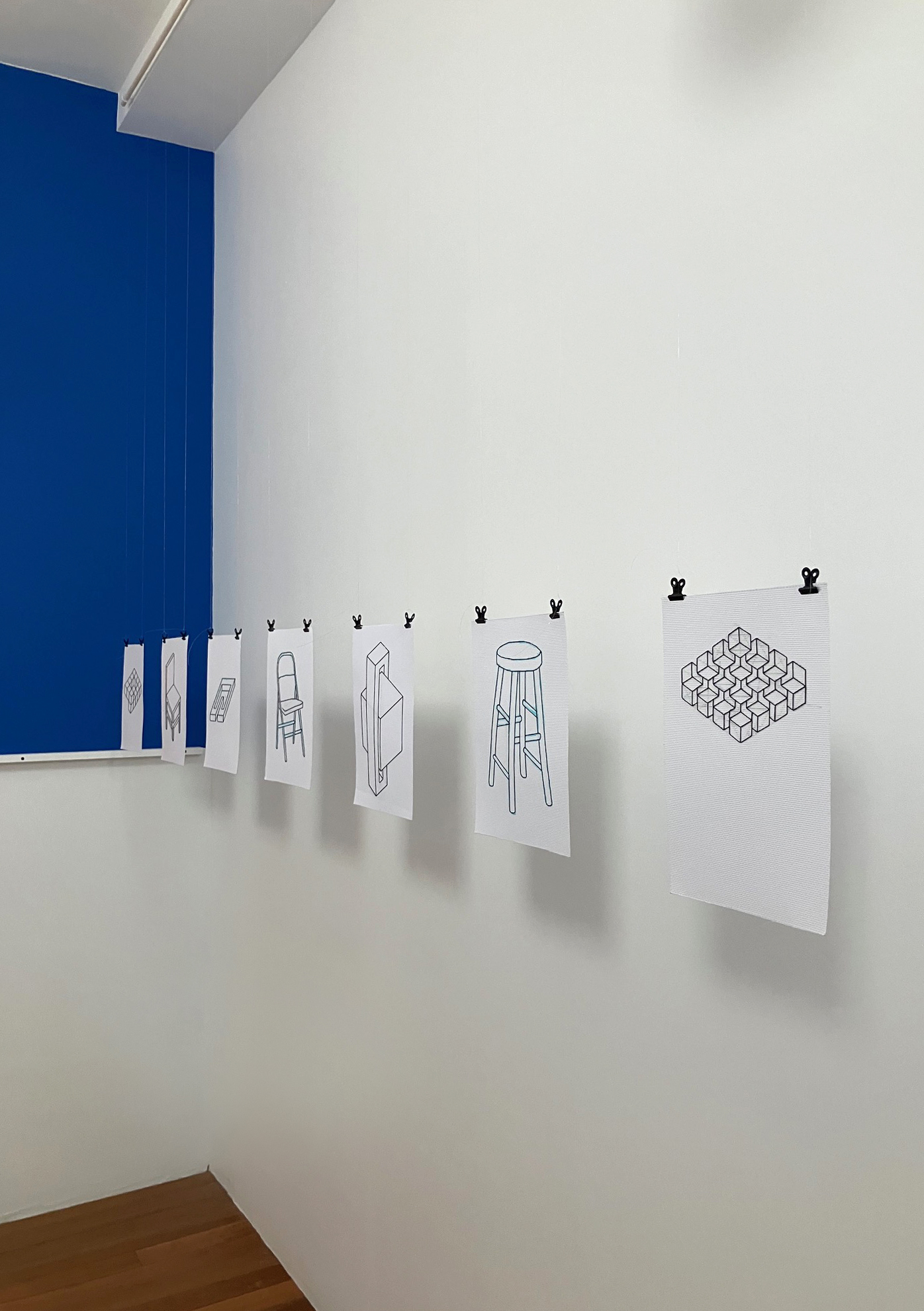
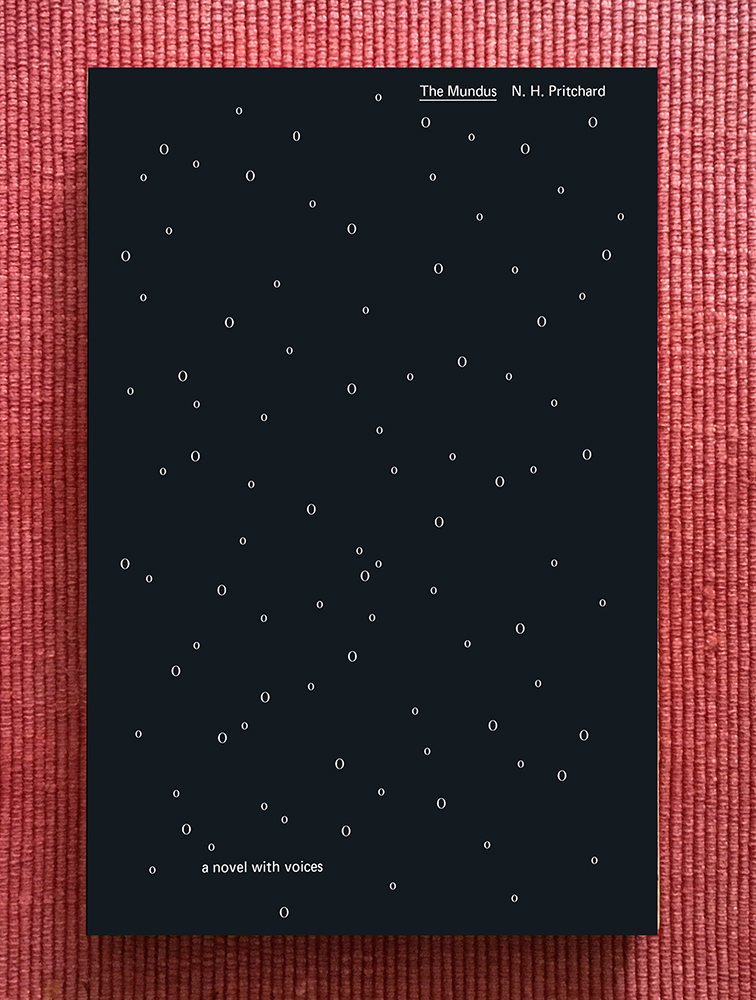
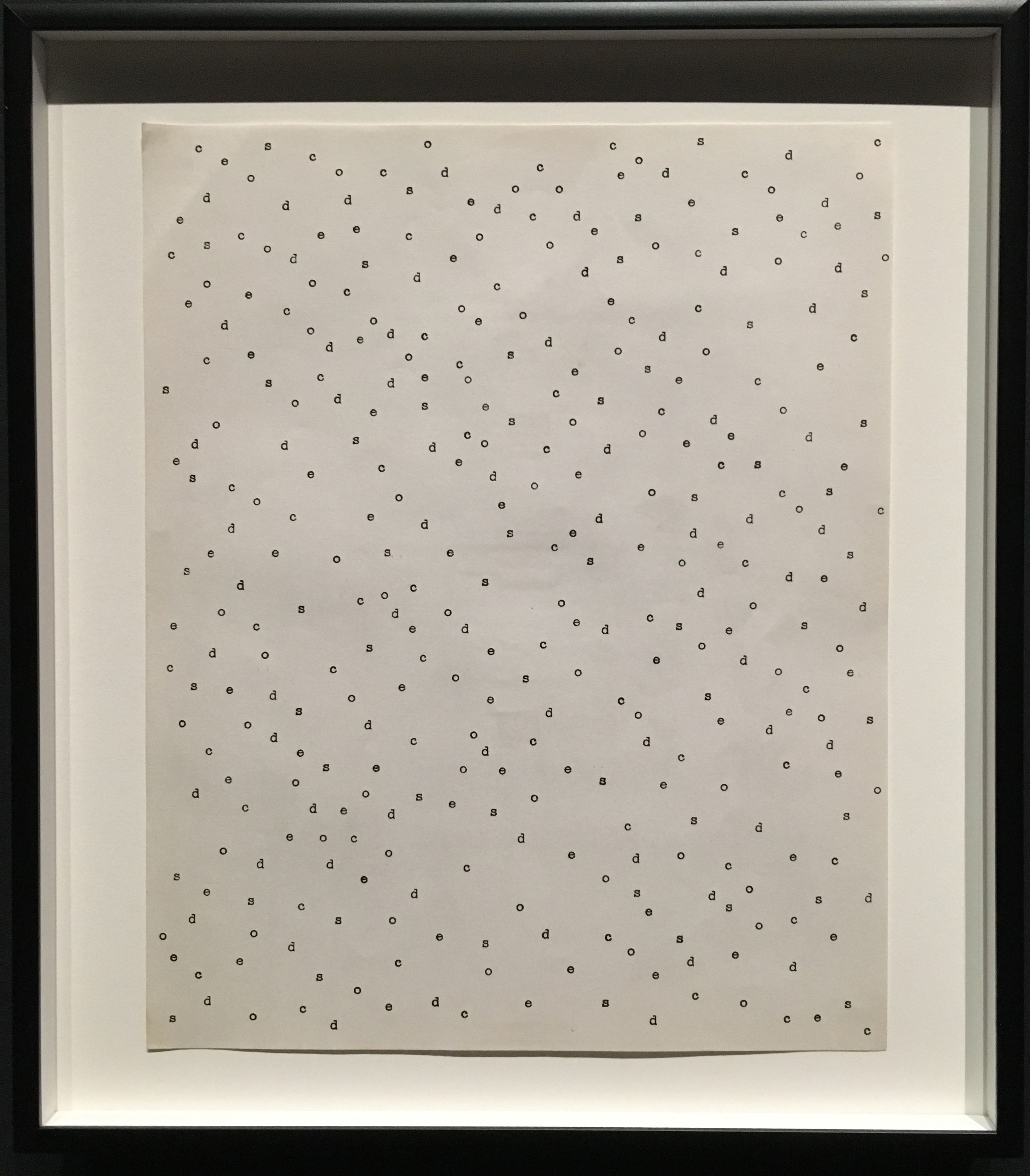
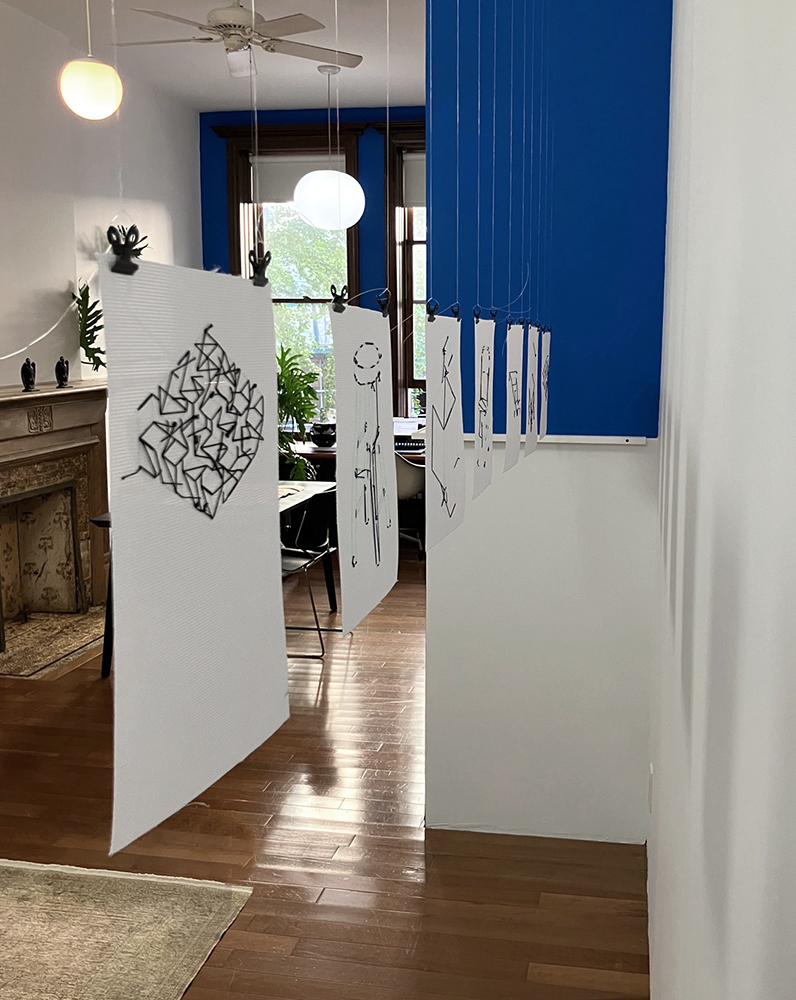
Gary Cannone and N. H. Pritchard
The Broodthaers Society of America is pleased to present Gary Cannone and N. H. Pritchard, the third in a series of exhibitions pairing visual artists with poets in an immodest attempt to "return the favor" of ekphrasis. The first pairing, Three Films by Sarah Maldoror, was instigated by Maldoror herself and revisited in collaboration with her daughter, Annouchka de Andrade, and the Maysles Documentary Center. The second pairing, Demetrius Oliver and Mirtha Dermisache, and the current pairing of Cannone and Pritchard have been curated by Joe Scanlan, founding director of the Broodthaers Society.
Gary Cannone (born 1964) began his creative career in the early 80s with the Chicago-based punk band The Leeches, but he threw his hat in with the visual art crowd after attending a transformative public lecture by Vito Acconci. Cannone earned an MFA from the University of Chicago in 1991 and currently lives and works in Los Angeles. He is long known for his deadpan sense of humor, a wit that became all the more slapstick and elegant when he was diagnosed with Multiple Sclerosis in 2013. After a brief, self-imposed retirement to assess the situation, Cannone couldn't help but notice that the daily struggles and small victories of dealing with MS shared much with the scope and temperament of his previous work, not to mention the newly gnostic materiality of language and objects and signs. He set himself to work again: weekly lists of simple but cognitively inaccessible terms like "tahini" or "grant application" painstakingly stitched into samplers. A newfound fascination with furniture, particularly chairs, and their Escherian workings. Snippets of poetry gleaned from Ralph's Supermarket receipts that are an explicit response to N. H. Pritchard's poetry.
N. H. Pritchard (1939–1996) was a profoundly gifted and polymathic poet working in New York City in the 1960s, 70s, and 80s. He was an undergrad art history major at NYU and a graduate student at Columbia, but the critical part of his education would seem to have been a downtown Manhattan scene that included friendships with Robert Motherwell, Frank O'Hara, and Alan Ginsberg, among others. He eventually settled in at the Umbra Poetry Workshop and published his first book, The Matrix, with Doubleday and Company in 1970 and his second book, EECCHHOOEESS, with NYU Press the following year. Pritchard's poetry runs the gamut from lyrical prosody to concrete poetry—and everything in between. A particularly affective approach is when he writes prosody but then scatters it, so to speak, spacing out the letters of words on the page but keeping their phonemic and syntactical order, as in "The Harkening" or "The Shroud." In these poems, reading is a recuperative process in which cognition and recognition nearly merge, like spilling a box of fasteners in a gravel driveway and having to pick the shiny, manufactured objects out of the stones.
First edition copies of The Matrix and EECCHHOOEESS will be on hand in the exhibition, along with a brand new copy of The Mundus, a previously unpublished manuscript that, after 50 years, has been edited by Paul Stephens and published by Primary Information, Brooklyn.
Gary Cannone (born 1964) began his creative career in the early 80s with the Chicago-based punk band The Leeches, but he threw his hat in with the visual art crowd after attending a transformative public lecture by Vito Acconci. Cannone earned an MFA from the University of Chicago in 1991 and currently lives and works in Los Angeles. He is long known for his deadpan sense of humor, a wit that became all the more slapstick and elegant when he was diagnosed with Multiple Sclerosis in 2013. After a brief, self-imposed retirement to assess the situation, Cannone couldn't help but notice that the daily struggles and small victories of dealing with MS shared much with the scope and temperament of his previous work, not to mention the newly gnostic materiality of language and objects and signs. He set himself to work again: weekly lists of simple but cognitively inaccessible terms like "tahini" or "grant application" painstakingly stitched into samplers. A newfound fascination with furniture, particularly chairs, and their Escherian workings. Snippets of poetry gleaned from Ralph's Supermarket receipts that are an explicit response to N. H. Pritchard's poetry.
N. H. Pritchard (1939–1996) was a profoundly gifted and polymathic poet working in New York City in the 1960s, 70s, and 80s. He was an undergrad art history major at NYU and a graduate student at Columbia, but the critical part of his education would seem to have been a downtown Manhattan scene that included friendships with Robert Motherwell, Frank O'Hara, and Alan Ginsberg, among others. He eventually settled in at the Umbra Poetry Workshop and published his first book, The Matrix, with Doubleday and Company in 1970 and his second book, EECCHHOOEESS, with NYU Press the following year. Pritchard's poetry runs the gamut from lyrical prosody to concrete poetry—and everything in between. A particularly affective approach is when he writes prosody but then scatters it, so to speak, spacing out the letters of words on the page but keeping their phonemic and syntactical order, as in "The Harkening" or "The Shroud." In these poems, reading is a recuperative process in which cognition and recognition nearly merge, like spilling a box of fasteners in a gravel driveway and having to pick the shiny, manufactured objects out of the stones.
First edition copies of The Matrix and EECCHHOOEESS will be on hand in the exhibition, along with a brand new copy of The Mundus, a previously unpublished manuscript that, after 50 years, has been edited by Paul Stephens and published by Primary Information, Brooklyn.